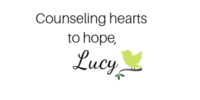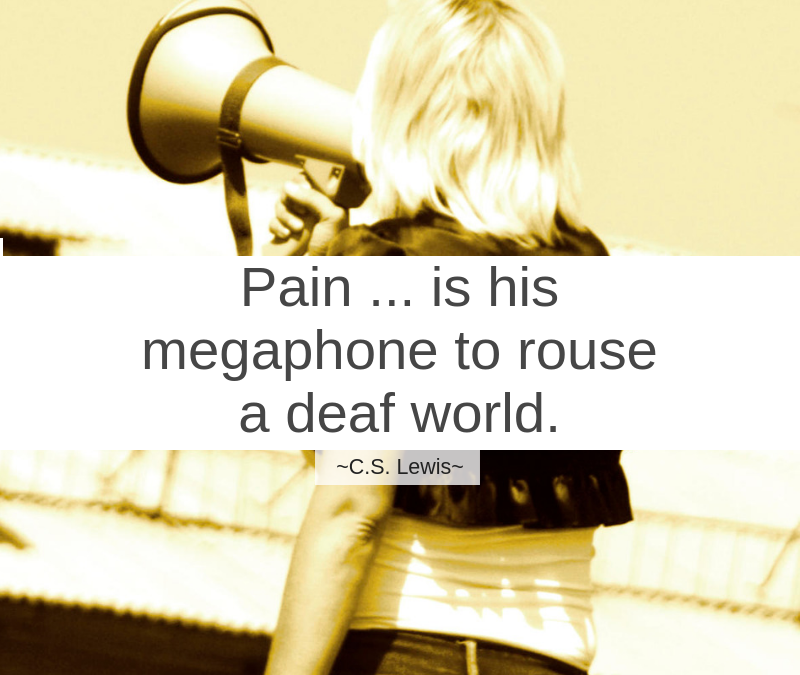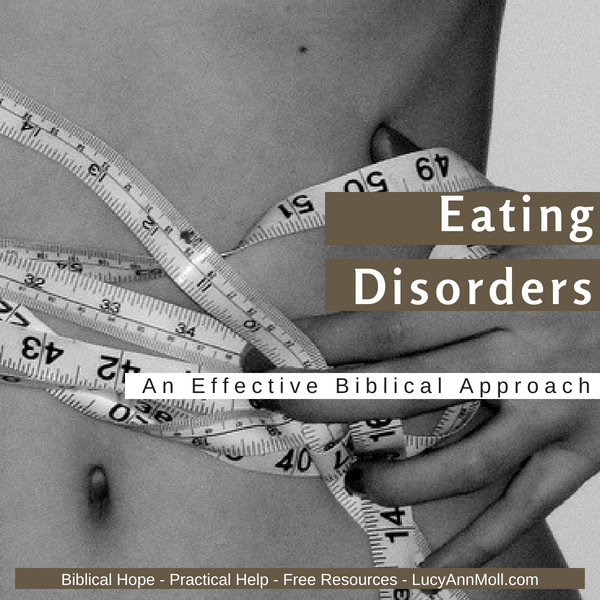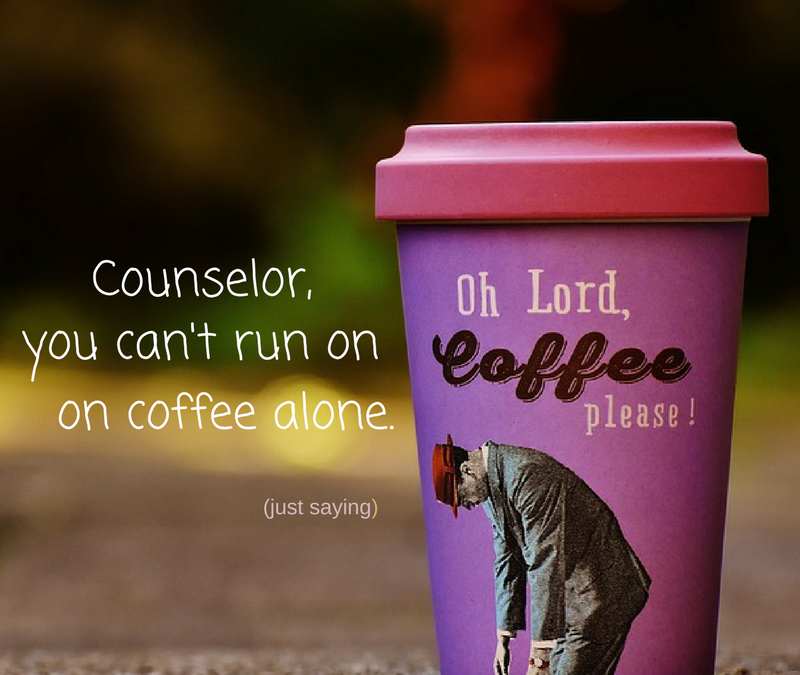
by Lucy | Aug 12, 2019 | emotions, whole health wellness |
Have you ever had a time when everyday stress overwhelmed you? Everyday stress is an emotional or mental strain that can happen to anyone but isn’t life altering like witnessing a mass shooting or receiving a cancer diagnosis. As I share my own everyday stress story, let’s remember the comforting truth that God promises to stick with us.
God’s your safe place. Always.
Click & Tweet!
That said, we also need biblical solutions for handling the anxiety that comes with everyday stress. I’m sharing three of my best stress smashers. With the help of God’s word, we all can regain the peace the soul desperately desires … even when our circumstances do not change.
Click & Tweet!
This everyday stress was a surprise
Mine began as many bad things do — with no warning. A while back, I skipped several days of exercise. Feeling guilty for eating too many cookies and skipping workouts, I decided to exercise for ten minutes in my living room.
First I stretched. Then I did sit-ups. But …
rather than doing my usual crunches — which, in retrospect, I SHOULD HAVE DONE — I tucked my feet under the couch, laid on back, and rolled all the up to sitting and back down. On sit-up numero ocho, something in my back didn’t feel right. Nonetheless, I pressed on and completed two more full sit-ups, far short of my goal. I rubbed my back and called it a day — and didn’t think much of my situps
until the next morning
when I awoke to an intense clenching in my lower back muscles and numbness in my legs. I elbowed my snoozing husband.
Steve, something’s wrong. I need your help. Steve, wake up. I need you.
He heard fear in my voice, listened to my story of super-tight back muscles, and got me a pain reliever. He assured me, “You should be better in a few days. Just rest. We’ll take care of the house stuff. Don’t worry.”
Then it got worse
My family cooked, laundered, and swept while I was laid up and my kitty curled next to me. I began to feel a bit better, but then I learned that a close family member needed daily injections. Nothing life threatening, but important and another thing to deal with
while my back continued to spasm and the numbness in my legs lingered.
I remember thinking and praying, “God, the doctor said I should be better in four to eight weeks. I’m not. Walking and standing hurts, and my legs and feet feel bubble-wrapped, and now a family member is hurting. Help us.”
And worse
Things seems to happen in threes, right? Another family member received bad health new. So I prayed again.
And again. More intensely. Desperately. I remembered this quote:
God whispers to us in our pleasures. He speaks to us in our conscience, but He shouts to us in our pain. It is His megaphone to rouse a deaf world. –C.S. Lewis
God had my attention. Soon, fear accompanied the pain. And my thoughts turned inward and became increasingly negative.
Will the doctors have a treatment that works?
Has God forgotten me? Is He punishing me? Does He care?
It turned out that my back got better after physical therapy. I continue to do the exercises to this day. As God providentially worked in my circumstance to bring healing, I learned at least three strategies to smash everyday stress.
3 Strategies for Handling Everyday Stress
We face everyday stresses of all sorts every day: unexpected bills, car problems, an argument with a loved one, traffic. Our reactions to these stresses reveal what’s in our heart (or, our true inner person). For instance, when stressed, we may become angry and lash out, or anxious and worry, or sad and mope. Scripture says,
No temptation has overtaken you that is not common to man. God is faithful, and he will not let you be tempted beyond your ability, but with the temptation he will also provide a way of escape, that you may be able to endure it (1 Cor. 10:13).
Here are three ways to handle stress anxiety by learning to trust God.
1. Agree with God
Agree with God that he cares about you, is with you, and is more concerned with conforming you to the image of his Son, Jesus, than making your everyday stress vanish like the wind. We live in a fallen world with all sorts of troubles.
REFLECT: What troubles are you facing now? Will you agree with God that He has a purpose for your problems?
2. Accept Your Situation (and improve it, if you can)
Give thanks to God in all circumstances; for this is the will of Christ Jesus for you.
What this verse is saying is the proper response to everyday stress is thanksgiving because we recognize that He is supremely in control of whatever comes your way for your good and his glory. We accept our situation as God’s good plan, thanking Him for how he is using it to transform us. Yet, if we can improve our circumstance, we often should.
Didn’t David kill Goliath when the giant taunted the Israelites? The men who spied out Jericho found a place to hide at Rahab’s home, right? And Jesus often slipped through the crowds who wanted to detain him. I sought help from a doctor, physical therapists, and medication.
ACTION: An excellent way to give thanks in all circumstances is keeping a list of reason to give thanks to God and adding to it daily.
3. Affirm the Truth
As your mind and your thinking are renewed by the Word of God, you gain a godly perspective of your everyday stress anxiety and are able to discern God’s will. Read Romans 12:2 carefully. Take time to meditate (or think carefully) about each phrase. Commit it to memory. Then consider what passages such as Psalm 23 and Romans 8:28-39 say about God. Ask yourself, What do these verses reveal about the character of God and His heart toward his children?
THINK: In light of God’s character and His loving-kindness toward us, how might we regain the peace that the soul desperately desires when we face everyday stresses?
Are you in the midst of S-T-R-E-S-S now? Need help?
Click & Tweet!
As a biblical counselor certified by ACBC who has counseled women and families worldwide by Skype, FaceTime, and Zoom, I invite you to look over my articles and to contact me with your questions.


by Lucy | Jan 22, 2019 | biblical counseling, emotions, whole health wellness |
Food cravings can come on quick, right? You’re driving along singing to KLOVE or whataver, and out of nowhere food cravings strike.You may crave a Snickers or chips or a Ding Dong. Or you may crave strawberries!
And up the road a 7-Eleven beckons.
In this short article, let’s look at…
- Biological food cravings versus emotional food cravings
- A biblical solution to food cravings
Choose Your Choice
So what should you do when hit by food cravings?
A. Try your very, very best to ignore them.
B. Proceed to the 7-Eleven and get the goodies..
Well, it depends! Biological food cravings differ from emotional food cravings.
Click & Tweet!
It’s wise to fill the biological kind because your body needs what is craves. Just think of how delicious a glass of water is when you are super thirsty. So when you fulfill this type of craving, you’ll think and feel better. But fight the temptation of emotional food cravings. If you cave, you’ll feel worse, and you’ll miss out on God’s best too.
So whatever you eat or drink or whatever you do, do it all for the glory of God. 1 Corinthians 10:31
Biological or Emotional?
Here’s a simple what to tell whether your food cravings are biological or emotional
Click & Tweet!
:
When you have a biological food craving and fulfill it, you feel nourished. And it doesn’t take much food to meet such a need either. One bagel, a wedge or two of low-fat cheese, or a couple of chocolates–that’s it.
But emotional food cravings aren’t about food. Giving in is an attempt to meet a need apart from God. That’s right: An emotional eater looks for comfort in food. Sometimes it follows “I’m a loser” self-talk.
Solution to Food Cravings
The good news is by obeying and trusting God, you can have victory over food cravings.
You make this break when you begin desiring what God desires and, with God’s help, change your heart. His power helps you make good and godly food choices, straighten out your thinking on food, and practice, practice, practice. A great resource for we who mess up — and this is all of us, right? — is Love to Eat, Hate to Eat by biblical counselor Elyse Fitzpatrick.
God wants you to live life based on truth, not emotions. The truth of who he is. The truth of who you are. His truth is sure.
But our emotions go up and down like an elevator. Now emotions are fine; God gave them to us. Just be sure you don’t let them yank your around. Rather, live out truth.
7 Quick Stop-Craving Tips
Here’s truth talk on healthy eating. Yes, you’ve heard it before … except maybe the last one … but it’s the best.
- Choose water over coffee and soda pop.
- Shrink your portions by using smaller plates.
- Limit your consumption of sugar.
- Skip foods with ingredients you cannot pronounce.
- Sit down during meals.
- Eat slowly.
- Remember eating becomes sacred when it becomes worship.
Remember the Bible verse I mentioned? So whatever you eat or drink or whatever you do, do it all for the glory of God. Let it guide your choices.
And when you do, then everything — from washing dishes and sweeping floors to writing blog posts to selling — can be worship. As long as you line up your thoughts with God’s, the simplest things become sacred.
And so it is with food.
Counseling Hearts to Hope,


by Lucy | Sep 6, 2018 | emotions, whole health wellness |
My mistake began as many bad things do. . .with no warning.
Click & Tweet!
I had skipped my gym workout. So to appease my guilt, I decided to stretch gently for a few minutes then do 25 full sit-ups. Bad mistake. You see, very soon I’d injure myself. And soon after my physical injury, emotional pain would hit me upside the head.
And as my pain worsened — physical and emotional — I learned 3 lessons I’ll share in just a moment.
Have you made a mistake too? What pain did you experice?
My Sit-Up Mistake
Now back to my sit-up story.
On that day which I’d love to erase from the calender, I tucked my feet under the couch, laid on my back, and rolled all the way up. (Seriously, friends, do NOT perform sit-ups this way. Too late I learned this truth from Bob and Brad, popular YouTube physical therapists. Check out this video of 15 exercises to never do.)
On my eighth full sit-up, something in my back felt weird. But I pressed on and completed two more sit-ups, far short of my goal. I rubbed my back and called it a day — and didn’t think much of my situps
until the next morning
when I awoke to an intense clenching in the muscles in my lower back and numbness in my legs. I elbowed my snoozing husband.

“Steve, something’s wrong. I need your help. Steve, wake up.”
I worried. (Yes, I know worrying is a sin.) Yes, pain had gotten my attention.
More Problems Hit
As I rested and got pampered by my family who cooked, laundered, and swept, as my cats curled next to me, I found out that a close family member needed daily injections. Nothing life threatening, but just another thing to handle. Time passed. My back injury lingered. And my emotional pain intensified. Dare I admit, I asked “Why me?”
I remember thinking and praying,
“God, the doctor said I should be better in four to eight weeks. I’m not. Walking and standing hurts, and my legs and feet feel bubble-wrapped, and now a family member is hurting. Help us.”
Then, health difficulties slammed two more family members and I prayed again.
And again.
More intensely.
Louder.
Desperately.
You may have heard this quote by C.S. Lewis:
God whispers to us in our pleasures. He speaks to us in our conscience, but He shouts to us in our pain. It is His megaphone to rouse a deaf world.
God was rousing me.
3 Take-Ways After a Mistake
You and I each have dealt with mistakes of all sorts–physical, emotional, relational, and spiritual. Until we see Jesus face to face, more pain will come. Sometimes a drizzle, sometimes a thunder and lightning and darkness.
As I’ve pondered these things and sought God’s counsel, I learned three things from my mistake.
1. God wants to meet with us. In other words, He wants us to talk with him and listen to him, prayerfully. Psalm 10 is great example.
2. God blesses you and me. Ephesians 1:3 underlines the truth that we who love Jesus have been blessed with every spiritual blessing in the heavenly realms. Every means every. You do not need to get more blessing. You have it all. Now.
3. Whatever happens as a result of a mistake, God knows what He is doing, for his glory and our good.
Click & Tweet!
It’s unimportant we understand it all. God does. He is in control. I am not.
What’s the bottom line? I believe God is good and sovereign and all-wise. He remains true when I falter. And so I hope in him. Even when I’ve made a mistake. Even when pain comes.
Question: What have you learned when you’ve made a mistake? If you have a moment, please leave a comment.
Counseling Hearts to Hope!


by Lucy | Aug 7, 2018 | biblical counseling, emotions, whole health wellness |
Eating disorders — this problem has a comprehensive Christ-centered solution. It involves biblical counseling and often medical professionals for lasting change. Guest blogger Hayley Satrom, a biblical counselor with HeartSong Counseling in Washington, D.C., shares her article that originally appeared on the Biblical Counseling Coalition website and is used with permission.

As a biblical counselor, I meet with many people whose lives, hearts, and minds are controlled by an obsession with food. Whether anorexia, bulimia, or binge-eating, disordered eating patterns are very common among my counselees. I’ve also found that often they need professional assistance beyond what I alone can provide.
Now, hear me out. I believe there are many counseling issues we biblical counselors can face without additional help from other trained medical professionals. That said, eating disorders, in my opinion, are simply not of that category.
After working with many anorexic and bulimic individuals, I have come to respect, and indeed mandate, a team approach to their care.
A Three-Pronged Approach
It was actually my supervisor, Deepak Reju, who was the first to suggest I utilize what he called a “three-pronged approach” in caring for counselees with eating disorders. “What are these three prongs?” you ask.They are:
- Biblical counselor
- Medical physician
- Nutritionist.
I now live by these three prongs when I counsel folks with eating disorders. Also the additional support has served me well as a counselor, and more importantly, has served my counselees.
Why the Extra Help?
On our best days, I like to think of biblical counselors as “specialists” when it comes to unearthing and tackling heart issues. And we do this by God’s grace—through His Spirit, by His Word, and in His church.
So please hear me that I am well aware that eating disorders are fraught with many heart issues. These heart issues include control, escape, body image distortion, anxiety, depression, distrust of God, confusion about God’s character, fear of man, and the list could go on and on. This list only begins to describe the important themes that a biblical counselor can and should unpack with someone who struggles with an eating disorder.
Is this enough, though? When a woman is abusing her physical body through either deprivation or bingeing of food, is processing heart issues the only help she needs? I can tell you that, from my experience, the answer is “No.”
In fact here are just a few of the ways a physician and nutritionist have come to my aid in counseling folks with eating disorders in the past:
Physician:
- Can tend to the innumerable health problems that are consequential to eating disorders (gastrointestinal disorders, heart problems, low blood sugar, fainting spells, etc.);
- Tests the body for important nutrients that may be low for someone abusing food (e.g. potassium, iron) and can prescribe supplements when needed;
- Will track the patient’s weight over time and can flag if the need for more intensive inpatient care is required;
- Can prescribe psychiatric medication if needed (or a psychiatrist could be used for this as well).
Nutritionist/Dietician:
- Manages everything food-related for the counselee;
- Creates meal plans for breakfast/lunch/dinner/snacks for a typical day and week;
- Provides specific accountability for food-related plans and goals;
- Conducts weekly weigh-ins (often blind to the patient) for the counselor and physician to refer to in monitoring the counselee’s progress.
As you can see, physicians and nutritionists can be of great help to the biblical counselor in caring for someone with an eating disorder. In fact, their support regarding the patient’s health and food needs allows a biblical counselor more freedom to spend the time in counseling appointments on what we do best—tending to the heart issues underneath the symptoms.
How Does It Work?
In practice, I try to meet weekly with counselees who are actively struggling with an eating disorder. I also suggest weekly meetings with their nutritionist for the sake of ongoing help in food-planning and accountability, as well as regular weigh-ins. Weigh-ins are particularly important for anorexic counselees. Their health and even very life are at risk if their weight drops too low.
Physician appointments do not need to be so frequent, unless specified by the doctor. In general, I find it best to allow the physician to lead the conversation on how frequent the patient needs to see him or her. Frequency of visits will depend upon the specific health challenges that exist due to the eating disorder, which is different for every counselee, of course.
I think it is helpful to check in with the physician and nutritionist every month or so to share notes on the counselee and to discuss next steps in coordinating her care.
Linking Hands
As biblical counselors, we provide an invaluable service of helping others change by addressing the heart issues that underlie thoughts and behaviors. We try to lead people to Christ—to know Him, trust Him, and lean into Him for help with even the hardest struggles. This service is necessary and irreplaceable. That said, in some situations we can do more. In fact, in some situations we NEED to do more.
An eating disorder is one of those situations. Eating disorders can be dangerous with many physical health consequences. Let’s link hands with other experienced caregivers who can advise our counselees on certain matters better than even we can. By caring for our counselees’ souls, minds,and bodies surely we will bring much glory to God.
Join the Conversation
- What are your convictions regarding biblical counselors engaging with other care-giving professionals?
- What else have you found to be helpful and effective as you care for individuals with eating disorders?
- Maybe you have even struggled with an eating disorder yourself. What advice would you give to caregivers?
Counseling Hearts to Hope,


by Lucy | May 10, 2018 | emotions, relationships, whole health wellness |
Got FATIGUE? Anxiety zaps your energy, messes with your mind and body, leading to fatigue, doesn’t it?
Among the reasons for increasing anxiety today are money worries, poor health, and uncertain times–culturally and politically.. What are other energy drainers you see in the world? In your life? But God knows what you face and is with you. In fact, he desires that you find your security in his strength.
He gives strength to the weary
and increases the power of the weak. Isaiah 40:29, NIV
So snap up these energy-boosting, fatigue fighters from the Bible. Cool?
Come to Jesus
While many of us sleep less than six hours a night according to this study, there’s a better rest when stressed.
Jesus said,
“Come to me, all you who are weary and burdened, and I will give you rest.” Matthew 11:28, ESV
Click & Tweet!
Coming to Jesus is an invitation to trust Jesus personally, not merely believe historical facts about him. At Biblical Counseling Center, we counselors share this biblical truth: Faith is believing the Word of God and acting upon it, no matter how you feel, knowing God promises a good result.
Faith in Jesus leads to the best rest and more energy. Have you tried to pray at bedtime? How has prayer deepened your sleep?
Choose New Thoughts
By the power of the Holy Spirit, you can change the way you think so your thinking lines up with biblical truth. When you have God’s perspective on your troubles, you’ll sense joy and this joy gives way to energy.
When self-centered, you and I may ruminate over what should have been done yesterday or last week, or tomorrow and we feel jittery. Hurrying drains energy and may lead to negative thinking. Here’s a popular resource for transforming your thoughts.
Do you know that when you think well, you feel well and you act well?
It’s true. What you think influences how you think and, in turn, how you feel emotionally and physically AND, in turn, how you act.
Click & Tweet!
For as he thinks in his heart, so is he. Proverbs 23:7, NKJV
From your heart (your inner person) flows your words and behavior.
Above all else, guard your heart, for everything you do flows from it. Proverbs 4:23, NIV

Care for Your Body
God created our bodies and we are meant to love and serve him and our neighbor through the strength he provides and the intelligence and creativity he gives us. The Fit for Life ebook helps you not only lose weight but also reduce get fit spiritually and emotionally.
Here are 5 more tips to boost energy through awesome, fatigue-fighting sleep.
1. Get up and go to bed at the same time every day, even on weekends.
2. Keep your bedroom is quiet, dark, cool, and comfortable.
3. Use your bedroom for sleeping and for sex with your spouse, but not for watching television or doing work.
4. Do not regularly take naps unless you are ill or a new mom short on sleep.
5. Exercise nearly every day, but avoid getting sweaty 4 hours of bedtime. Walking is a great option.
Says biblical counselor and author Wayne Mack,
Recognize the fact that an occasional night when you have difficulty sleeping or getting asleep or staying asleep is quite common and will not seriously harm you unless you let it. Don’t focus on or worry about not getting to sleep. Remember also that on rare occasions God may withhold sleep because he wants you to spend extra time in prayer or meditation.
So no worry, friends. Rather, rest in Jesus, change your thoughts, and take care of your body. Need biblical hope and practical help? Please contact me and I can answer your questions or we can set up a complimentary 15-minute phone consult. Just ask.
Counseling Hearts to Hope,


by Lucy | Mar 29, 2018 | biblical counseling, Counselor Resources, whole health wellness
Self-care for the counselor: Yes, it’s true. . .you cannot run on coffee alone! So what do counselors really need? Biblical counselor Eliza Jane Huie shares important stuff here, helping you help others. Her article appeared first here at The Biblical Counseling Coalition website and is used with permission. Eliza is also listed on the Heart2Heart Counselor Directory. Check it out.

Counselors give significant amount of their time and energy to their calling. At its very core, biblical counseling is a call to be an ambassador of reconciliation by walking with distraught people through trials and suffering and holding out gospel hope to them. Furthermore, it is a challenging calling.
If you are a doing any type of counseling, formal or informal, you need to be very intentional to also take care of yourself.
Click & Tweet!
This is an area that can be easily missed. One simple reason for that is because self-care is something not often talked about among biblical counselors. In seeking to lay down their lives for others, they can be less attentive to their own needs.
Philippians 2:4 says,
Let each of you look not only to his own interests, but also to the interests of others.
Don’t miss the “not only” part of that passage. Looking to your own interests appropriately can actually position you to serve better. Here are a few questions you can ask to determine if you need to heighten your focus on caring for yourself as you serve others.
Do You Listen to Your Body?
Your body sends you signals when it needs something. It is important to listen to what your body is telling you. Basic essentials like food and sleep can be the first areas that are unknowingly sacrificed when caring for others. Guard against pushing your bedtime later and later. By God’s design, we need rest and when this is missing, it will affect your ability to serve well. Healthy eating goes along with your need for rest. Despite many people’s experience, you cannot run on coffee alone.
Click & Tweet!
Poor eating habits will catch up to you.
Lack of exercise is another way you can ignore listening to your body. It can be much easier to miss the messages your body is telling you in this area. Counselors spend a good amount of time sitting down and listening to people. Your mind and heart are active, but your cardiovascular system and muscles are not. The aches and pains you may be feeling might just be your body telling you it needs care. Hearing difficult stories can build up stress in your body, and exercise can be a helpful way alleviate stress in yourself.
Does Your Schedule Reflect Your Priorities?
Undoubtedly, there are other things you really enjoy doing besides counseling. However, if you find your hobbies and interests have no place in your schedule, it is probably time to take a look at why that is. There will always be a crisis or need when you are a counselor. A call to care for others as a counselor does not mean you lose yourself.
Click & Tweet!
God has given you other talents and interests. There is purpose in these gifts and interests as well, so don’t ignore them.
Do you have time alone? Even the most extroverted person needs time alone—time to be with the Lord and to recharge should be a guarded priority in your schedule. Because counseling fully engages you with people, being alone can help you create “space” to reflect on your own life with the Lord. If Jesus took time to find a quiet place of solitude, then we should consider how much we need to do the same. Not only does this create a space for being refreshed, but it also expresses a trust in God to care for others while you care for yourself.
Are You Less Patient or Empathetic?
Being prone to impatience is certainly a disconcerting character trait for believers, but if you find yourself less patient with the people you are caring for, then it is something that must be addressed. Lack of empathy is also cause for concern. Both of these problems can come from traversing in the dark places of people’s lives. Walking with people in crisis and pain will have an effect on you. Counselors need to be aware of signs that they too need care. If you find that you care less, it is a good time to care more for yourself. Be sure you are not neglecting those things that help you to serve well.
Conclusion: Self-care Is Not Selfish
These are just a few areas to get you thinking about whether or not you are doing well in caring for yourself as you care for others. The ministry of counseling has a deep impact on your own mind, body, and soul. Counselors need to rest assured that self-care is not selfish; it is a means to guard their own wellbeing. In turn it blesses those to whom you are ministering. You will serve better when you care for yourself.
Join the Conversation
What are other signs pointing to a need for self-care should counselors be aware of in their lives? How can counselors get better at disciplining themselves for self-care?
 About Eliza Jane Huie
About Eliza Jane Huie
Eliza Huie is an experienced biblical counselor and serves as Director of Counseling at Life Counseling Center in Marriottsville, Maryland. She seeks to bring gospel hope to those hurting or seeking change.
Counselor, would you like to join Heart2Heart Counselor Directory too? Choose a free listing (or an upgrade). Make connections with like-minded counselors and new counselees. Learn more.
Counseling Hearts to Hope.













 About Eliza Jane Huie
About Eliza Jane Huie
